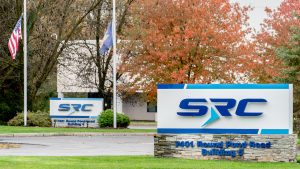UTICA — Utica College announced that the National Security Agency (NSA) has approved its cybersecurity and information-assurance courses.
It’s the first step toward the private college becoming a Center of Academic Excellence in Information Assurance Education, the “gold standard in education in the field,” Utica College said in a news release.
The approval means Utica College’s undergraduate and graduate-level courses meet all of the elements of the Committee on National Security Systems’ (CNSS) “rigorous” standards for information-systems security professionals and risk analysts. The college’s programs will be recognized at a CNSS ceremony in June.
(Sponsored)

What’s on the Horizon for Print Security?
Imagine being robbed…because of your printer. Unfortunately, that scenario played out in real life for an undisclosed number of victims collectively robbed of nearly $1 million worth of Bitcoin due

Ask the Expert: Solving Your Workforce Challenges with Registered Apprenticeship
Finding skilled workers isn’t getting any easier. Whether you’re facing retirements, turnover, or a lack of qualified candidates, you’re not alone. Businesses across every industry are struggling to fill critical
“Achieving this approval took an intensive, collaborative effort by the faculty, staff and students,” Joseph Giordano, professor and chair of cybersecurity undergraduate and graduate programs at Utica College, said in the release. “The criteria for approval is a very specific and complicated process. Seven courses from both the undergraduate and graduate programs were sent to the National Security Agency for approval.”
New York state currently has eight centers of academic excellence in the field, including Syracuse University, the University at Buffalo, Rochester Institute of Technology, and the U.S. Military Academy at West Point, according to the NSA website.
Utica College’s graduate program has one concentration in intelligence and one in computer forensics. The intelligence concentration covers counterintelligence, cyber counterterrorism, cyber countersabotage, while the computer-forensics concentration is more hands-on, focusing on collecting and preparing evidence of computer crimes such as fraud, child pornography, and cyber espionage, according to the college.



